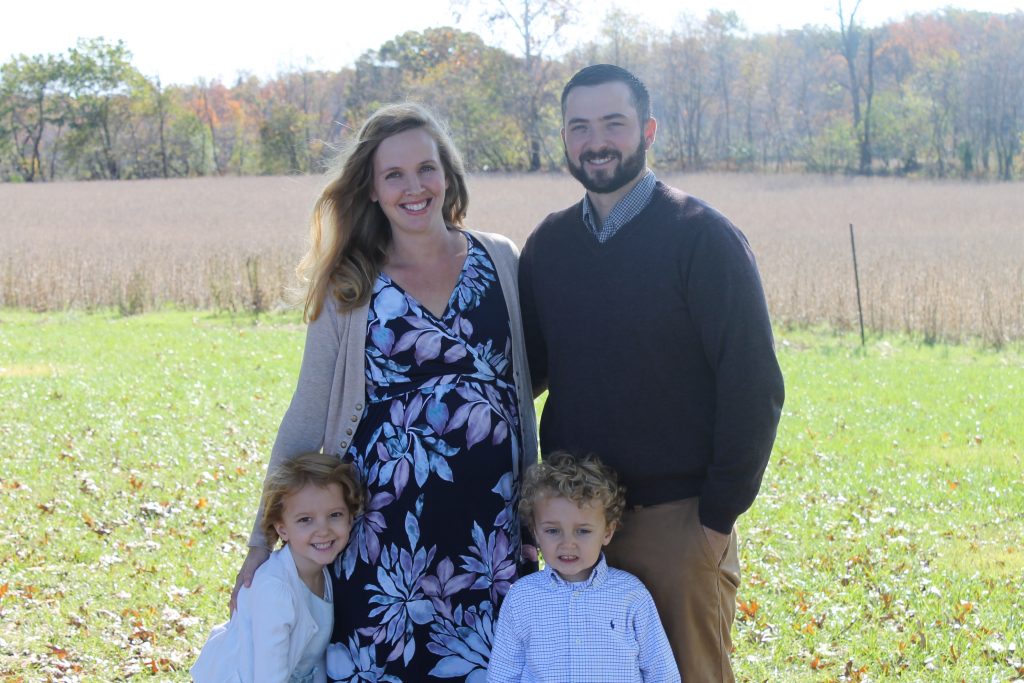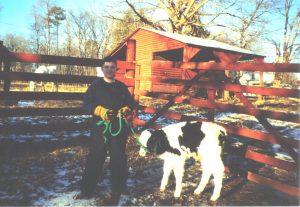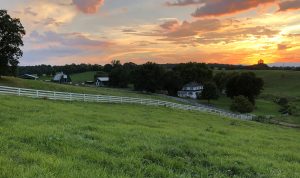I Fulfilled My Dreams of Being a Livestock Farmer, Now I’m Helping Others Make Their Dreams Come True

For as long as I can remember, I’ve always wanted to be a farmer.
My father was in the Air Force, which required us to live in a southern Maryland subdivision up until 6th grade. Whenever we took school field trips to historic farms or camped on a farm for Boy Scouts, I can distinctly remember the livestock, crops, and barn structures that helped fuel my hunger to become involved in agriculture.
When my dad retired and took a civilian position in central Virginia, we moved back to my parents’ hometown of Madison where we built a house on a parcel of land they’d purchased 15 years prior. My parents were very supportive of me living out my dreams of raising livestock by helping construct chicken coops, running me around to sell eggs, and by giving me an orphan calf on Christmas which was the start of my cattle operation.

This passion, along with the help of many community volunteers and organizations like 4-H and FFA continued, to grow my appetite and knowledge of agriculture and confirmed my desire to obtain a career in this rewarding industry. I was fortunate enough to attend Virginia Tech to study animal science, and for the past several years I had the pleasure of working with livestock and crop producers as a field sales technician for a local ag supplier. Through this position, I learned more about the nutritional needs of livestock and the ability to meet these needs with improved forages. In addition, I was able to learn a great deal about the required inputs for producing a cash crop.
Along with learning how to raise livestock, 4-H also provided the opportunity to meet a beautiful young lady who is now my wife. We are blessed to be raising our three children in the same house on the same farm that her and her three siblings grew up on along with her father and his five siblings. The family farm that we’re now honored to work was purchased in 1951 by my wife’s grandparents. We currently manage 50 cow calf pairs, background 200 plus calves a year, and direct market beef and pork to local consumers. We’re blessed to lease land from four different landowners and value these relationships that have been formed over the years.

When I saw a job posting from American Farmland Trust for a Sustainable Grazing Project coordinator, I knew it was a match made in heaven. Over the past eight months, I’ve had the privilege to learn more about the great work American Farmland Trust is doing across the country. In addition, I’ve been developing The Sustainable Grazing Project, which is a unique, place-based project focused in the Rappahannock Region of central Virginia. The project currently covers a five-county area to include Rappahannock, Madison, Culpeper, Orange, and Fauquier. This project is funded by local philanthropists that understand the needs for increased awareness for holistic practices focused on improving soil and water quality and the positive impacts of responsible grazing on carbon sequestration.
We’re working closely with several pilot producers in Virginia to assist with the adoption of regenerative grazing practices to protect natural resources while improving profitability for producers. On-farm research and operation-specific grazing management and conservation plans are being developed with an emphasis on the adoption of improved record keeping and technology. Due to their importance for sustainable production, efforts are also being made to improve markets and land access. Results from this pilot project will be conveyed using workshops, blog posts, a podcast, and case studies to help improve the awareness and adoption of such practices. This initial effort will be vital in developing protocols which can be used to replicate this project in other regions of the U.S.

